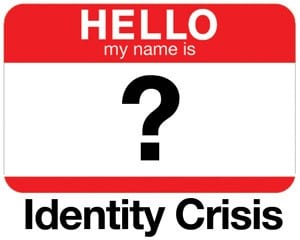Over tea, Dan recalled the young woman I had been at nineteen, long before I was diagnosed with bipolar disorder at thirty-seven. He mentioned that, sure, I seemed moody at times, but he noted that my moods didn’t swing to either extreme. While Dan isn’t a psychiatrist, I took his opinions as seriously as if they were the opinions belonging to a physician.
My daughter Marilla has been inquisitive about my personal history lately, and she asked to see the studio that I rented from Dan. He agreed to show it to us. While I gazed around the rental, which had been renovated since I lived there, my memories of what it used to look like poured forth – vivid memories that my extensive electroconvulsive therapy (ECT) thankfully didn’t erase.
During our visit with Dan, Marilla and Lucy played in the garden with his dogs while we watched them from the patio. He asked me a bunch of questions about how bipolar manifested in my life. It wasn’t idle chit-chat. Dan genuinely wanted to know the details so he could be a better therapist, so I discussed many bipolar-related experiences. Dan was very compassionate, and he gave me some excellent perspectives, but I felt drained after telling him about how my life was devastated by mental illness.
That same evening it hit me how burned out I’ve become by the fact that I’ve made bipolar disorder my primary identity. I can’t blame anyone but myself for making my life a bipolar disorder-dominated one. (An important point I’d like to emphasize is that I believe it has been essential for me to be involved with bipolar research, advocacy, community service, and more, but with I overdid it – I became consumed with and by all things bipolar and thought it would be my life’s work.)
It’s now simply time for me to shift my focus and accept that I’m not going to become a mover & shaker in the bipolar community. I admire how many altruistic, amazing mental illness advocates help thousands of people. However, I finally see that making bipolar disorder both my dominant identity and my life’s work doesn’t benefit my mental health. It’s a bittersweet realization, I have to tell you, because bipolar is what I know, but I feel relief as well.
Other people with bipolar disorder find enormous fulfillment in working with bipolar-related issues, organizations and careers. I honestly thought that’s what I wanted to do, but at the ripe age of forty-four, I’m changing my mercurial mind. (And I might change it back – who knows?)
When I was first diagnosed with bipolar disorder, I not only wanted to help myself but I wanted to help others cope with bipolar disorder. I founded the Depression and Bipolar Support Alliance chapter (DBSA) for my county. Despite the fact my bipolar depression and anxiety never let up. I participated in newspaper interviews that examined my personal experience with bipolar and promoted my new, free support groups. I’ve helped people who have contacted me via the phone or internet. I felt driven to take my mental illness and do something positive with it, but I was naive about how these efforts would ultimately drain me.
Now I feel that it’s time to reframe my self-identity. I hope to cut down on thinking how “bipolar-ish” I am, which I’ve been doing practically all the time, for eight years since I was diagnosed in 2007. As you can gather, it’s a deeply instilled habit. Prior to my diagnosis, I grew up very close to my father who had bipolar disorder, so I’ve been surrounded by this mood disorder virtually my whole life.
These days I hesitate to say I’m in “remission” from bipolar because I’m superstitious and neurotic about that term. HOWEVER, my life has been much, much improved ever since I’ve been taking effective medications. It seems like now that my bipolar depression finally lifted, it’s a good time to revise how I see myself in terms of being “mentally ill”. I’m fed up with feeling like I’m damaged goods no matter how far I come along in my recovery. I’m going to need my therapist’s help with all this because I’m not going to be able to magically change my self-image in thirty days!
Here’s what my starting goal is – I’m going to think, really think, of myself as a writer and mother. Ever since I was little I wanted to be a writer and a mother. Not a bipolar writer nor a bipolar mother. If someone asks me what I do (the dreaded question!) I’ll simply say writer and mom to begin with, and leave my diagnosis out of the picture (for at least a little while) if the person is unaware of my history. Small steps.
Now, bipolar disorder will remain firmly ensconced in my psyche. I’m not ignoring my bipolar disorder. I think about bipolar a minimum of four times a day when I must take my meds, and I discuss it when I see my therapist biweekly and psychiatrist every month.
I’ve given bipolar disorder more than enough attention, and while it may always clamor for a place in my head (literally and figuratively), I’d like to create a healthier balance between the illness and who I am at the core. I’ve written about “how much more I am than bipolar” in previous IBPF posts, but I haven’t internalized that belief because I haven’t been ready. I think I’m at the threshold of recognizing, exploring and claiming the non-bipolar parts of myself now.
Thanks for reading! Dyane


